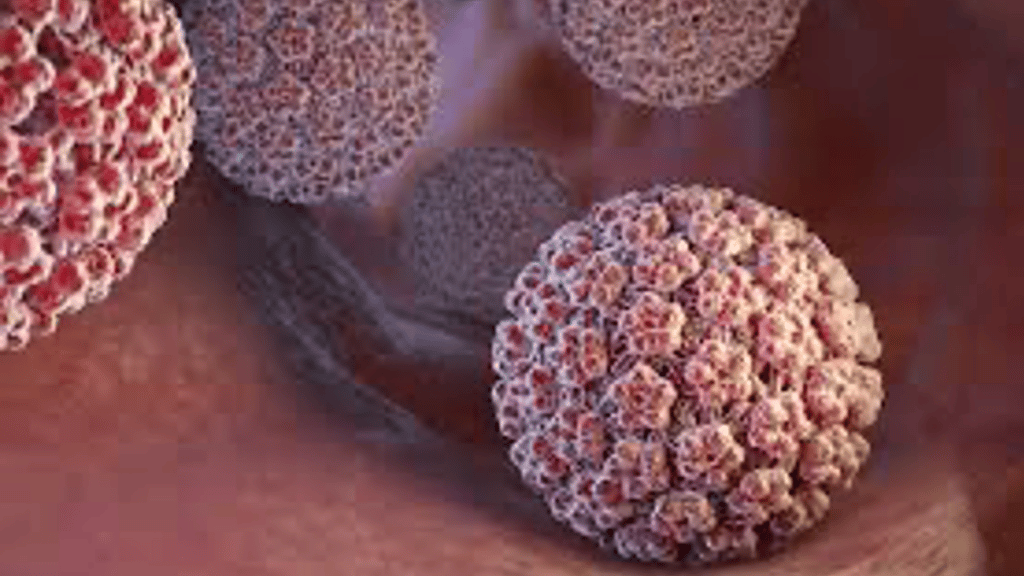A viral infection called HPV frequently results in growths on the skin or mucous membranes (warts). HPV comes in over 100 different forms (HPV). Warts can develop from some HPV infections, while others can lead to various cancers.
The majority of HPV infections do not cause cancer. However, some genital HPV strains can lead to vaginal cancer in the lower region of the uterus (cervix). HPV infection has also been connected to cancers of the anus, penis, vagina, vulva, and back of the neck (oropharyngeal).
Meaning of HPV
The most typical sexually transmitted infection is HPV or human papillomavirus. About 30 of the over 100 types of this virus are sexually transmissible. Others have warts on their genitalia and/or rectum, vaginal discharge, or even no symptoms. Some people never exhibit any HPV symptoms.
As long as a person’s immune system can stop it, it is mostly safe. However, there is a possibility that you will develop chronic HPV if the virus persists and you don’t receive the appropriate testing. This is because your body begins to fight off HPV at this time as a response to its presence. This may result in the development of an abnormal tissue growth known as a precancerous lesion.
Symptoms of HPV
Unfortunately, the majority of people with a high-risk variant of HPV won’t exhibit any symptoms of the infection until it has already resulted in significant health issues. Regular checks are crucial since testing is the only way to determine for sure if you are at an increased risk of developing cancer from HPV. Before they become a problem, testing can detect HPV and abnormal cell changes, allowing you to receive treatment and maintain your health. Cervical cancer can typically be avoided if your doctor recognises the early warning signals.
HPV symptoms are uncommon, and much less often are those linked to particular HPV strains. Therefore, it is common for people to go years without realising they have the virus. Some signs, nevertheless, may point to HPV.
The most typical HPV symptoms include:
- A heavy or watery vaginal discharge is considered abnormal (This is the most common symptom)
- Itchy vagina
- Pain during sexual activity
- a burning feeling when urinating
- development of warts in the genital region
- development of warts in the mouth, pharynx, or throat
- Wart growth on the hands or feet
HPV starts showing symptoms when it has already developed into cancer or genital warts.
Different Types of Cancer and their Symptoms
Penile Cancer:
Indicators of penile cancer, or cancer of the penis, include changes in the thickness or colour of the skin there, as well as the development of painful sores.
Anal Cancer:
Anal cancer may result in changes to bowel habits, anal bleeding, pain, itching, or discharge (pooping).
Vulvar Cancer:
Changes in the colour or thickness of your vulvar’s skin are possible indications of vulvar cancer. There could be a lump, a lump of persistent pain, or itching.
Throat Cancer:
A painful throat, ear ache that won’t go away, persistent coughing, discomfort when swallowing or breathing, or a lump or mass in your neck are all symptoms of throat cancer.
Cervical Cancer:
Bleeding after sex, between periods, or after menopause can be a sign of cervical cancer. Watery, bloody discharge with a foul odour is also a symptom of cervical cancer.
Vaginal Cancer: In the case of vaginal cancer, you may notice symptoms such as frequent and painful urination, pelvic pain, and constipation.
Risk Factors that can Lead to HPV Infection:
1. The number of sexual partners:
A genital HPV infection is more likely to develop the more sexual partners you have. You run a higher risk if you have sex with a partner with several sex partners.
2. Age:
Common warts mostly affect kids. Adolescents and young adults are mostly affected by genital warts.
3. Poor immune systems:
People with a weakened immune system are more likely to get HPV infections. HIV/AIDS and medicines used to suppress the immune system following organ transplants can impair immune systems.
4. Personal Contact:
Your chance of contracting HPV may increase if you touch someone else’s warts or do not wear protection before coming in contact with surfaces exposed to the virus, like public showers or swimming pools.
Conclusion
Therefore, as soon as you discover similar HPV symptoms in your body, you must contact your doctor. And the best way to protect yourself from HPV infection is to practice safe sex and get the vaccination at the earliest.
